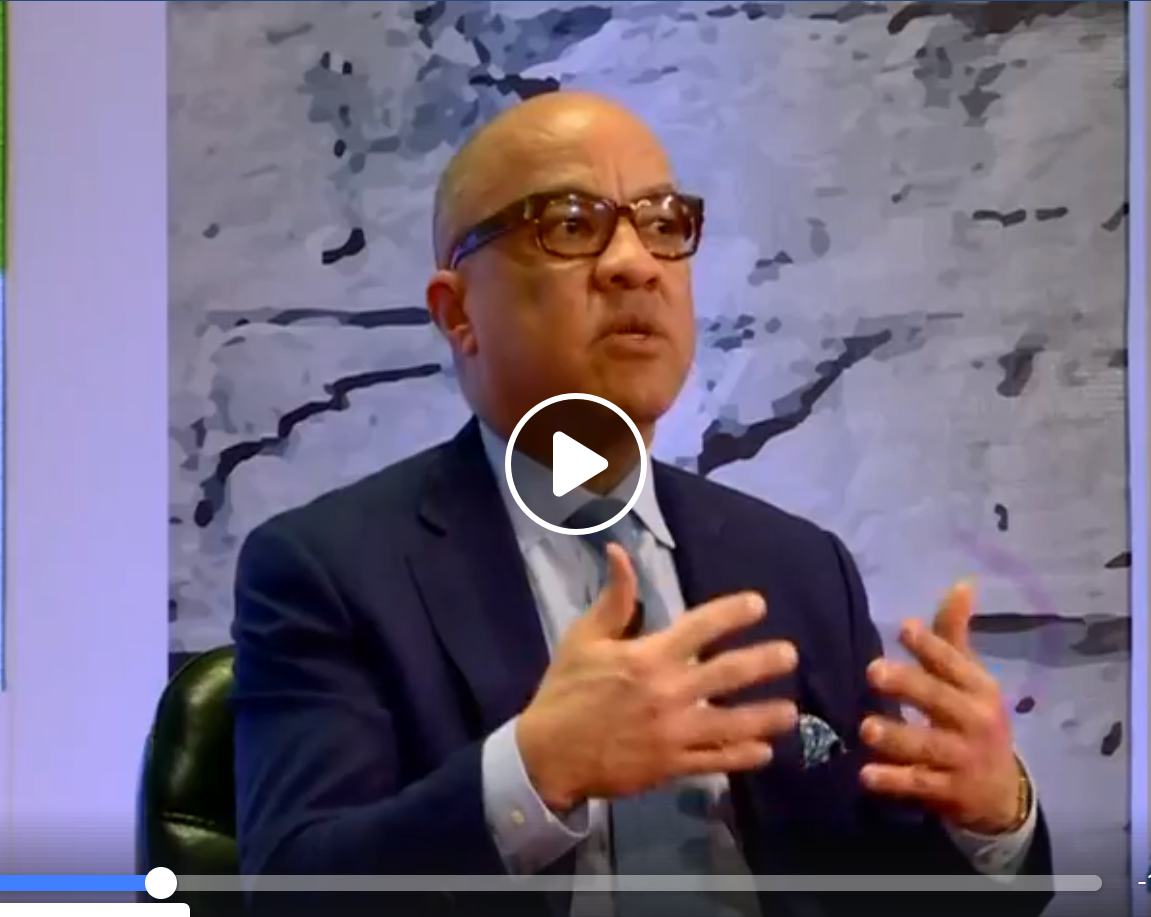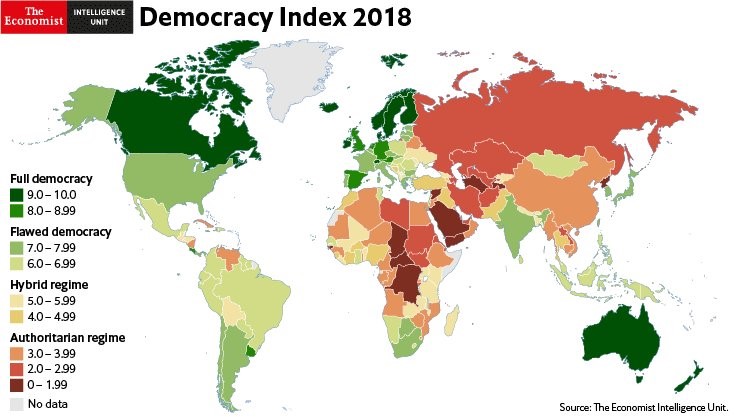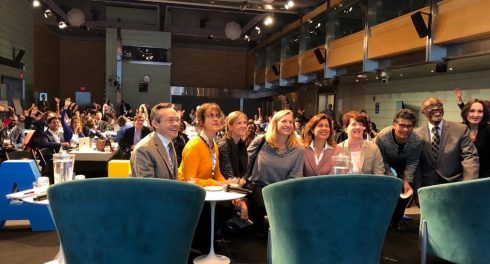Dear Valued Reader,
Happy New Year!
Last year was a busy one for TAI Weekly – never any shortage of stories to feature and our readership more than doubled. So, we are excited for what 2019 may bring and are back in full swing with more stories around transparency, accountability, open data, civic space, tax and improved grant making. Keep reading and sharing your feedback.
Highlights:
- Citable but unrepeatable?
- Coded to repress
- New year, new rules, same failings?
- Taking a wide-angle lens to corruption fighting
- Are women the hope for democracy? (or simply everything)
- Resolution dos and don’ts
- TAI spotlight: From watching our language on ‘closing civic space’ to a vision of philanthropy fit for the new year
In case you missed it…
Citable but unrepeatable?
 Photo: Pixabay
Photo: Pixabay
We start by satisfying our inner wonk. For years transparency advocates have pointed to Bjorkman and Svensson’s “Info is Power” study to make a case for the value of disclosure. Now the Accountability Can Transform (ACT) Health project in Uganda has tried and failed to replicate the results. A combination of information provision and increased oversight can only slightly change the behaviour of frontline service providers, casting doubt on the power of information to foster community monitoring or to generate improvements in health outcomes. Stay tuned for more research and findings this year (likely conflictual) from more experiments including the Transparency for Development project. Perhaps time for a collective evidence reflection later in 2019.
Coded to repress
More sophisticated AI capabilities are bolstering a resurgence of authoritarianism. Steven Feldstein explores how the technology is reshaping repression. For more examples of state’s harnessing tech for control, we need to look no further than China’s emergent digital police state or Sudan’s recent blocking of access to social media platforms during anti-government protests.
Previous Weeklies have highlighted the Marriot data breach that affected close to 500 million guests. This occurrence – and many like it – raised a lot of pertinent questions around the extent of privacy and protection of consumer data. Shifting privacy protection from rights to duties, should companies be expected and required to act reasonably to prevent harm to their clients? The Washington Post calls on US Congress to shape new data privacy norms arguing the current regime is broken – first of several editorials to come on this topic in 2019.
Certainly, standard perceptions of responsible corporate behavior have yet to adjust to their handling of privacy concerns – for example not yet a factor in the JUST capital rankings in the US, although such issues as equal pay, diversity, female leadership are (and those firms ranked well outperform non-just competitors).
Finally, a reflection for data activists and curators – how can we move away from high volume but shallow, “social snacking” on information, to deeper and more personalized information engagement? Caroline Cassidy makes a case for putting more energy into getting to know your audience inside and out, listening to your audience more, and making your messages more participatory. Larry Kramer, President of Hewlett Foundation (a TAI member), seems to have been listening – read his detailed case for why he and colleagues will be listening more to “people who think we are wrong.”
New year, new rules, same failings?
A ‘celebration’ of sorts for Danske Bank in winning the 2018 actor of the year in organized crime and corruption? A €230 billion money laundering scandal put them at the top ahead of 22 other contenders. When will the bank’s Estonian branch comply with the Danish Anti-Money Laundering Act?
This was just one of all too many large-scale financial crimes among EU countries exposed last year. The European Commission proposes tightening anti-money laundering rules to prevent the smuggling of illegally-obtained funds. Will the promise to go beyond “quick fixes” be followed through? Eric Avian and Michael Ronickher make a strong case for more AML whistle-blower incentives and rewards as an asset to law enforcement.
At least new bloc rules to eliminate the most common corporate tax avoidance practices came into force on January 1. Meanwhile, Jiří Skuhrovec offers a new tactic to reduce the reliance on tax havens – namely stopping public tenders awards to firms based in havens – a change to combine with more comprehensive beneficial ownership registries. Talking of which, the new year offers a reminder that progress is not inexorable, and gains may be lost. The British government is trying to push back registry requirements for overseas territories to 2023, although some MPS are fighting to get public registries in place by 2020.
If in search of a fairer tax regime, minimizing the attractions of offshore havens is obviously an attractive option, but the Washington Post editorial team stay close to home and lay out steps that could cut $220 billion off deficits without undermining investment incentives. Who wants to take on the challenge of detailing similar steps for their own country? It would be nice to see countries learn from each other on ways to strengthen equitability not just cut, cut, cut.
Tax incentives too can, by definition, rob countries of revenues, at least in the short term. But are they worth it? New research by the Intergovernmental Forum (IGF) and the Organisation for Economic Co-operation and Development (OECD) digs in on mining sector incentives and finds plenty of warning signs that governments are giving away too much. Useful reading for Addis Tax Initiative donors as they debate appropriate indicators on tax expenditures.
Essential Listening

Darren Walker, the Ford Foundation President, discusses how government, CSOs, and business in East Africa can work together to disrupt inequality and highlights the need to support the youth who are society’s engine of change. Listen here.
Taking a wide-angle lens to corruption fighting
In Latin America and Caribbean (LAC) region, corruption is now threatening to erode the foundations of much of the region’s economic well-being and political stability as well as the rule of law. So notes the Inter-American Development Bank that recommends a 360 degree approach in responses involving collective action by governments, the private sector, civil society, and international institutions to tackle the roots of corruption and capture through global, regional, and domestic initiatives.
Perhaps the IADB has been talking to Florencia Guerzovich and Paula Chies Schommer who ask what donors can learn on collaborative citizen engagement in anti-corruption. They share their takeaways from their research in Brazil and Mexico, including that civil society dynamics, are critical for the activation of anticorruption mechanisms and institutions.
Staying in the region, the results of the 2018 Latin American are out. This year’s findings show that the scores for transparency awarded to each country improved, on average, by 8%. Leading the field are Guatemala, Costa Rica, and Colombia, in that order, with Argentina, Bolivia and then Venezuela the lowest ranked. Nevertheless, the Index uncovered numerous shortcomings and gaps in progress, pointing to the need for continued efforts to drive legislative openness reform in Latin America.
Want to start afresh for the new year? Here are some new compliance habits to adopt in 2019. Start with keeping your code of conduct simple, innovate your compliance program, and strengthen your investigation protocols.
Are women the hope for democracy? (or simply everything)
Carnegie Endowment for International Peace’s article makes a case for how women-centric campaigns are playing a critical role in India’s upcoming national election. Politicians are finding that they need to listen to women if they want power (seems more than past time). Meanwhile, a South Asian international research partnership (DFID-funded) leveraged their engagement with research about rural women to develop a regional agenda to bring visibility to rural women’s rights in partnership with UN Women.
Gender will be a big theme in 2019, including in the open government world, but expect growing restrictions on civil society to continue to make life difficult for global initiatives like Open Government Partnership. How to handle member countries that are increasingly clamping down? In Brazil, one of Bolsanaro’s first acts as President was to decree more supervision and monitoring of NGOs and INGOs. Switching continents, read a recap of Kenyan government interference on the media in 2018.
Finally, the Economist Intelligence Unit’s 2018 Democracy Index is out. Scores show that only 4.5% of the world’s population live in a “full democracy” and an increase in political participation in almost every region of the world. There were also more women participating. Learn more about the state of democracy in different countries.

Resolution dos and don’ts
What’s the organizational equivalent of rushing to the gym in January? Take a look at these 10 measurable New Year’s resolutions by Nonprofit AF that your non-profit or foundation can achieve this year. Which of them do you think you could accomplish this year? How many might/will you invest in but slip back to old habits by spring?
Finally, the words of the year in 2018 were hardly cheery but certainly relevant – ranging from toxic to misinformation to justice. What will be on our tongues in 2019? Check out philanthropy’s 2019 buzzwords. Meanwhile, Michael Jarvis argues its time to stop using some phrases – top of his list “closing civic space.”
TAI spotlight
Supporting independent media in SA | Luminate Group
Luminate explains why they gave a grant of $215,000 to AmaBhungane to help them in their broader role of fighting for media freedom and accountability.
International Prosecutors Fought Corruption in Guatemala | Open Society Foundation
Eric Witte analyses the constitutional crisis in Guatemala after the government’s decision to expel a successful anti-corruption body.
Listening to the people who think we are wrong | Hewlett Foundation
Larry Kramer outlines why the Foundation will be listening with empathy and engaging more with the people who question their work.
A vision of philanthropy in the new year | Ford Foundation
Darren Walker offers a new vision for philanthropy in 2019 comprised of listening and learning at every step of the journey.
Watch what you say| TAI
TAI’s Executive director, Michael Jarvis makes a case for stopping using the phrase ‘closing space’ in 2019 and ideas on what to do differently.
Calls: Proposals, papers, speakers and course invites
- Co-Create the 6th OGP Global Summit Agenda – February 6
- New Media Ventures 2019 open call – February 11
- OECD and OGP Call for Innovative Open Government Cases – February 12
On the calendar
- Effectively Engaging People with Disabilities – January 23, 2019
- The Role of Tax Morale in Development – January 25, 2019 (Paris, France)
- ACM FAT* – 2nd conference on fairness, accountability, transparency dimensions of machine learning and AI – January 29-31(Atlanta, GA)
- Resilient Democracy – a strong and diverse civil society – Feb 6, 2019 (Brussels, Belgium)
- Data on Purpose Conference – February 19-20 (Stanford, CA)
- Story Movements 2019 – March 1 – 2, 2019 (Washington, DC)
- Open Data Day – March 2, 2019
- The Surprising Power of Liberating Structures – March 11 – 12, 2019 (Seattle, Washington)
- Open Gov Week – March 11 -17, 2019
- The Liberating Structures global gathering – March 13 -15, 2019 (Seattle, Washington, USA)
- TICTec Research Conference – March 19-20, 2019 (Paris, France)
- OECD Global Anti-Corruption and Integrity Forum – March 20-21 (Paris, France)
- The CEP Conference – May 7-9, 2019 (Minneapolis, USA)
- Csv, conf, v4 – May 8-9, 2019 (Eliot Centre, Portland)
- Collective Impact Forum Convening – May 14-16, 2019 (Chicago, USA)
- 2019 Open Government Partnership Global Summit – May 29-31, 2019 (Ottawa, Canada)
- RightsCon Tunis – June 11-14, 2019 (Tunis, Tunisia)
- Global Conference on Transparency Research – June 26 – 27, 2019 (Rio de Janeiro, Brazil)
- Tax Justice Network Conference 2019 – July 2 -3, 2019 (City, University of London, UK)
- Global Symposium (COPGS) on Citizenship, Governance, and Accountability in Health – October 15-18, 2019 (New Delhi, India)


